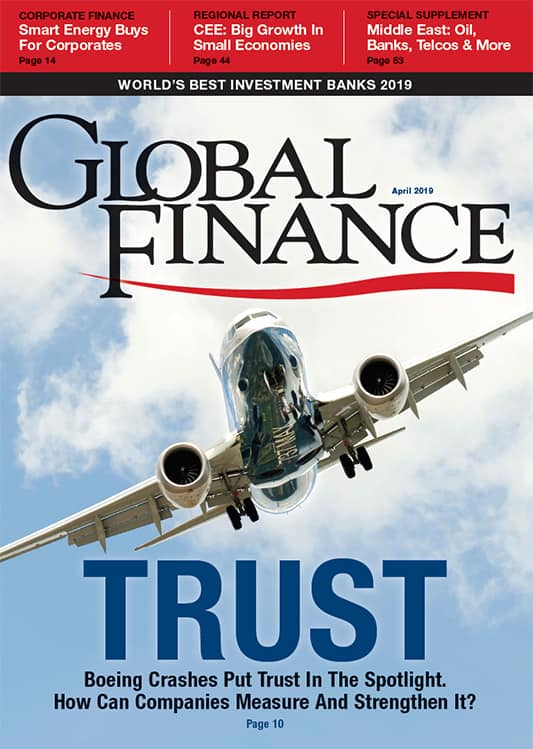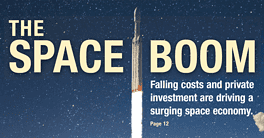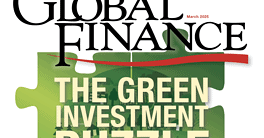Global Finance magazine editor Andrea Fiano's message to readers about what to expect in this month's issue.
April 2019 | VOL. 33 NO. 4

Click Here To View Full Issue
A slowdown is coming, but not one so deep as tobe called a recession. Lately, that seems to be theprognosis of economic forecasters everywhere,and it has led to a real change in the policy stance of theworld’s largest central bank: the US Federal Reserve. Thelatest meeting of its Federal Open Market Committeeconfirmed that the central bank does not intend to raiseinterest rates this year. Even as the committee lowered itseconomic expectations, it put on a mildly optimistic spin:With luck, maybe growth will be robust enough to raiserates in 2020.
After an era of historic quantitative easing, with so manyreturns in fi xed income going into negative territory, weenter a new phase. Earlier expectations that the Fed wouldsoon be raising interest rates every three months have disappeared.If US rates will not rise as was expected, then earlierforecasts for other economies must now be re-thought.In particular, what does the shift mean for emerging markets?Will moderated potential for US returns stimulatethe appetite for investment elsewhere? There is no obviousanswer, but the change is forcing other central banks, indeveloped and emerging markets, to come to terms withthis new reality. Globalization means that what happens inthe world’s largest economies a ects everybody.
The Fed’s moderately upbeat tone could not hide loominguncertainties: trade tensions between the US and China,the Brexit saga and more. Surely the capacity for globalinstitutions to navigate these issues will depend in no smallpart on whether trust can be established among the parties.
In this issue, we tackle the issue of trust at a corporatelevel, and its increasing relevance in the era of social media.Recent studies have begun to home in on the bottom-lineimpact of trust—witness recent damage to Boeing and eventhe US Federal Aviation Administration—and to outlinethe type of consistent long-term investment in culture-buildingrequired to nurture public trust. Crisis managementis not enough any more. These issues are of particularimportance to the financial industry, as its reputation sustainedheavy damage from the global financial crisis andsubsequent scandals; financial institutions currently remainamong the world’s least-trusted companies.

Andrea Fiano | Editor
afiano@gfmag.com

